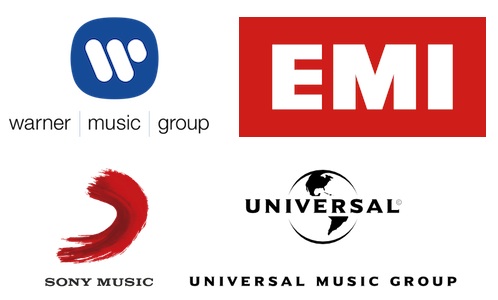 People I talk to seem to be split between two opinions: the majors are doing OK; and the majors are doomed. If people come from the world of independent music they tend to be biased against the major labels or downright distrustful of them. If they have some experience with major labels they tend to recognize the degree to which the majors have changed and have greater faith (or hope) they will carry on.
People I talk to seem to be split between two opinions: the majors are doing OK; and the majors are doomed. If people come from the world of independent music they tend to be biased against the major labels or downright distrustful of them. If they have some experience with major labels they tend to recognize the degree to which the majors have changed and have greater faith (or hope) they will carry on.
Lately I’ve had some interesting conversations with people who think the label model is proving its sustainability. I agree. Not all labels will survive — witness last week’s news that respected metal label Hydra Head will cease putting out new releases. But labels have worked hard to develop new business models and are proving that a varied mix of revenue streams can sustain a business.
If you think labels are more doomed than saved, here are the numbers for your own interpretation: In the first six months of 2012, Universal Music Group, Warner Music Group and Sony’s music companies had operating profits of $356 million on $6.26 billion of revenues. Given the seasonality of the business, these three majors should have over 1 billion dollars operating profit in 2012. (Due to release schedules, the first six months of the year are the lightest in terms of profit and the last six are the heaviest.)
I think you’d have to be living in a bubble to say the traditional music business – in the midst, and possibly at the bottom, of a painful transition – is doomed with well over $1 billion in annual operating profits. That figure doesn’t take into account amortization (which take into account the value of the intangible, fixed-life assets at the very heart of the business). Nor does it take into account depreciation, and some other one-time expenses such as fees related to mergers. But it’s still a billion dollars. I’d say that’s evidence the record label model can succeed in its current form for many more years.
The other majors in recorded music and publishing only add to that billion-dollar figure. EMI does not report its financial results. Bertelsmann does not break out the performance of BMG Rights Management on a quarterly basis, but CEO Thomas Rabe told Billboard.biz last month that BMG revenues would reach 250 million euros this year.
Those are somewhat encouraging numbers given the trauma the music industry has gone through, yet it’s always been easier to find a naysayer than a believer in large, corporate music companies. Jeff Price,co-founder and former CEO of digital distributor TuneCore, wrote last week in a blog post “[t]he old system is in ruins, degrading a bit more each day.”
But the old system is not in ruins. Not yet. And with Universal Music Group closing in on its acquisition of EMI Music’s recorded music division — most likely with some concessions to lower market share — the “old boy’s club,” so to speak, is about to get a little bit stronger.
The idea that the record industry lays “in ruins” runs throughout the public’s consciousness. While watching the movie “The Social Network” recently — and not for the first time — I noticed an interesting exchange between the characters Sean Parker (played by Justin Timberlake) and Eduardo Saverin. Screenwriter Aaron Sorkin had Parker equate the demise of Tower Records with Napster’s victory over the record industry. But Sorkin missed the point: Tower Records was merely a supplier. Tower went bankrupt, but the labels are still in business.
The old way of doing business — the old value chain — is gone. Music companies owned the plants that manufactured CDs and LPs. They owned the distributors. They had representatives and promotional people spread across the country. It was a business built for physical product, newspaperadvertising and mom-and-pop retail.
The new value chain is different. It encourages efficiency and a keen eye toward technology. Ownership of multiple pieces of the value chain is gone — distributors and manufacturers have been sold. Artist contracts are different (for better or worse). Staffs are smaller and many tasks are outsources.
The reason why EMI Music and Warner Music Group had so many bidders? There’s still great value in music companies.

